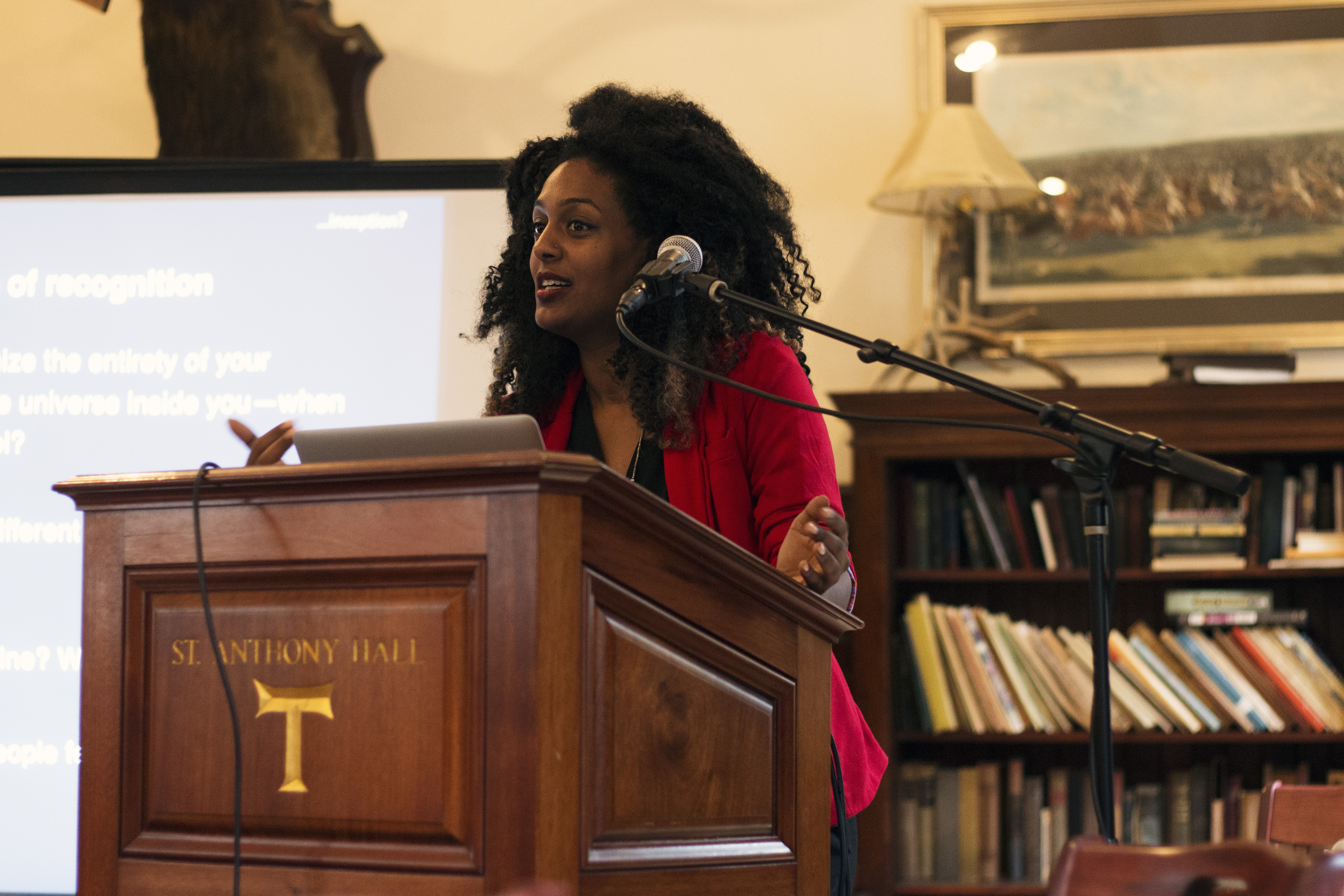
On Wednesday afternoon, around 15 Yale students gathered in St. Anthony Hall to listen to Hannah Giorgis, an African-American feminist writer, editor and creative media specialist, discuss how to make space on the internet for marginalized identities.
Giorgis took an interactive approach to her lecture, inviting audience members to discuss among themselves the ways in which social media affects their lives and identities. Shortly after, she spoke about her own experiences dealing with the lack of representation for her specific identity and background in the media. Later in the lecture, Giorgis highlighted how social media websites helped her find a community of others who empathized with her experiences.
“Social media should reflect and challenge the world in which it’s created,” she said.
Giorgis first discussed her own experiences with institutions that invalidated her identity and her efforts to find spaces through social media where she felt more represented.
Reflecting upon her time as an undergraduate at Dartmouth College, she said she felt isolated at times because her experience working six hours at a job every day “wouldn’t be in the Dartmouth guidebook,” given that the majority of students did not hold part-time jobs.
“It started with school and the moments when I felt that certain spaces weren’t made for me,” she said.
Giorgis then asked people in the audience to think about a time when they felt truly and genuinely alone and to reflect upon the emotions they experienced. She emphasized a “Four R” approach to understanding the world of social media and how it can create spaces for marginalized identities. For example, the first “R” stood for “reflection,” the act of considering how the media reflects such identities.
Unable to find representative spaces in mainstream media, Giorgis sought other venues to communicate her thoughts and opinions.
“Social media sites like Tumblr and Twitter were the first times I saw black bodies having an authentic claim to femininity,” Giorgis said.
On these sites, she was able to read quotes from poets, writers and activists, such as Junot Díaz, to which she was able to relate. She cited a quote from Díaz that discusses the experience of not seeing oneself reflected in society.
These websites also proved more accessible to Giorgis. She was not the only one to find solace in these websites; in small groups, audience members discussed their personal experiences with reflection and representation in social media.
“It made me reflect about the way social media has molded my activism and general conception of how I view myself as a woman of color,” Bianca Bamgbade LAW ’17 said.
Giorgis also pointed out that social media nowadays often serves as a platform for people to counteract narratives in the mainstream media, as seen with events such as took place in Ferguson, Missouri, or the Black Lives Matter movement. In the past, efforts like these required significantly more resources, Giorgis noted as she drew the audience’s attention to the progress social media has brought in these instances.
In discussing these ideas, audience members recognized the limitations of social media, pointing out the passivity that it may encourage in relation to tragedy; people lurk behind their screens but do not actively fight to change the situation.
“People struggle with how to marry online energy to a sustainable form of organizing,” Giorgis said.
Attendees said they left with a greater understanding of how to make space on the internet for themselves and a newfound ability to consider their own experiences and identities in the larger context of social media.
Jasmyne Pierre ’20 said she enjoyed the environment of Giorgis’ talk and said it was nice to discuss these ideas with other people whom she felt occupied the same space as she.
The next lecture in the St. Anthony Hall’s Fall Lecture Series, “The Ethical Quandaries of Activism,” will take place Oct. 5 at 4 p.m.







